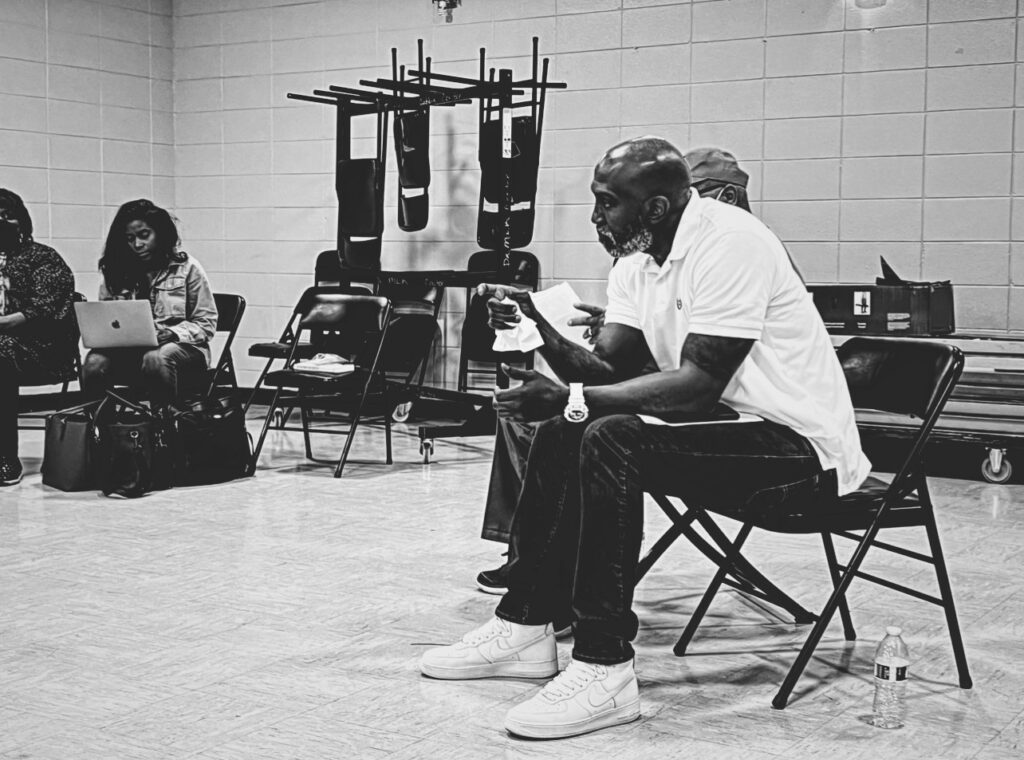
As a formerly incarcerated man having served 25 years, I didn’t know what to expect when I walked into the Louisiana State Capitol for the first time on March 14, 2022. I carried ideas of what to expect from studying the messiness of the law and engaging in Angola’s Special Civic Project on the inside, but couldn’t be sure my instincts were accurate until I sat in stoic disbelief inside my first committee hearing on the Administration of Criminal Justice.
It was disheartening to witness the lack of empathy, inattention, disconnection to the stories of impacted people, disrespect, character and community attacks, condescending tones, and discourtesy exhibited during committee hearings. It reminded me of ugly elections where one candidate uses a smear campaign, dirty name-calling, and reputation-debasing practices to destroy the character of the other. I saw these same election-origin practices employed inside legislative committees to defeat bills drafted to change policies that negatively impact formerly and currently incarcerated people.
In my opinion, the Louisiana legislative session could have been remarkably pivotal in changing people’s lives for the better if opponents and legislators had worked together with VOTE and our allies to pass meaningful laws. We entered the session hoping to pass bills dealing with post-conviction relief for non-unanimous jury verdicts (HB 271, HB 744); parole consideration for juvenile and adult lifers (HB 730, HB 404); medical parole for very sick people (HB 728); fair housing for formerly incarcerated people (FIP) (HB 665, HB 663, substitute adopted in House Committee: HB 1063); eliminating medical co-pay fees in prison (HB 175); giving incarcerated people the right to vote for redistricting purposes, if they are counted in those districts (HB 846); creating jobs by legalizing the cultivation of marijuana and prohibiting discrimination against FIP when regulating the cannabis industry (HB 125, HB 430).
At the start of the session, VOTE and our allies approached every table with the intention to solve obvious problems with current policies in housing, employment, voting, and the in-justice system. However, opponents approached the same table as if it was an election, with incumbents on one side, and challengers on the other. Rather than searching together for a common resolution to policy initiatives, opponents portrayed us and our allies’ bills as soft on crime, fiscally impossible, or having unintended consequences.
Thousands of lives are negatively impacted by bad policies, many historically associated with racism. For example, the legality of non-unanimous jury verdicts was based on a law rooted in the nature of systemic racism. Providing retroactive relief would not only have been a game-changer, but a life-changer for more than 1,500 currently incarcerated people convicted by a non-unanimous jury (HB 1077, substitute adopted from HB 744). However, the controversial nature of this bill metaphorically drew a line in the sand, pitting the incumbents against the challengers, while other political affiliates and legislatures refused to work together to achieve the aims of justice. As a result, what started off as a bi-partisan effort to remedy the non-unanimous jury verdicts in Louisiana disappointingly became an election where the incumbents sought to get over and ahead while leaving the challengers behind and unheard. In the end, the only people left behind are the 1,500 incarcerated people who remain unconstitutionally convicted by a non-unanimous jury.
When any legislative session is approached as an election, bills are labeled based on the impact they will have on a group of people. For example, the lifer’s parole bill was associated with Black people because most lifers–juveniles and adults–are Black. The non-unanimous jury verdict bill was also associated with Blackness. In fact, bills introduced in the Administration of Criminal Justice are stereotypically perceived as Black bills. When bills are labeled in terms of race, as a challenger to the office of an incumbent, Black bills are slowed down, tripped up, and outright defeated in committee, while other bills are fast-tracked to the Governor’s office.
When bills are labeled in terms of their race impact, a legislative committee functions like an election, with incumbents on one side and challengers on the other side. As we know, an election can only be won when one side loses. This win-lose perception divides incumbents’ from bills introduced by the challengers, creating the idea that a challenger’s bill can only win at the expense of the incumbent’s allowing them to win.
Notably, VOTE and our allies opposed the incumbents’ bills during the 2022 Session, and Governor Edwards has since vetoed them: HB 54, by Rep. Bagley; HB 99, by McMahen; HB 103, by Rep Thomas; HB 544, by 544 Rep. Villio; HB 1059, Rep. Bacala; SB 36, Sen. Henry; SB 142, by Sen. Morris; SB 304, by Sen. Cathey.
When you look at the vetoed bills, particularly those aligned with the Administration of Criminal Justice, both sides lost the election. Bills introduced by the challengers, VOTE, and our allies, stalled in committee, and bills introduced by incumbents and opponents survived committees but were ultimately vetoed.
Until each side moves its efforts away from the win-lose approach, and towards a win-win approach for policy reform, Governors will be required to focus their time and energy on vetoing bills, and Louisiana will remain first in overtly discriminating against currently and formerly incarcerated people in housing, employment, voting, and the injustice system.
But we still can make things better next year, if we can shift the goal of the 2023 legislative process and adjust the social and racial justice lens to see a win-win perspective. Through this lens, the 2023 legislative session can end without the Governor vetoing bills perceived as rollbacks or unhealthy to the goal of prison reform.
Ronald Marshall is the Policy Analyst for Voice of the Experienced (VOTE) and Voters Organized to Educate. While incarcerated he worked as stand-in counsel for 24 years until his release in 2021.
